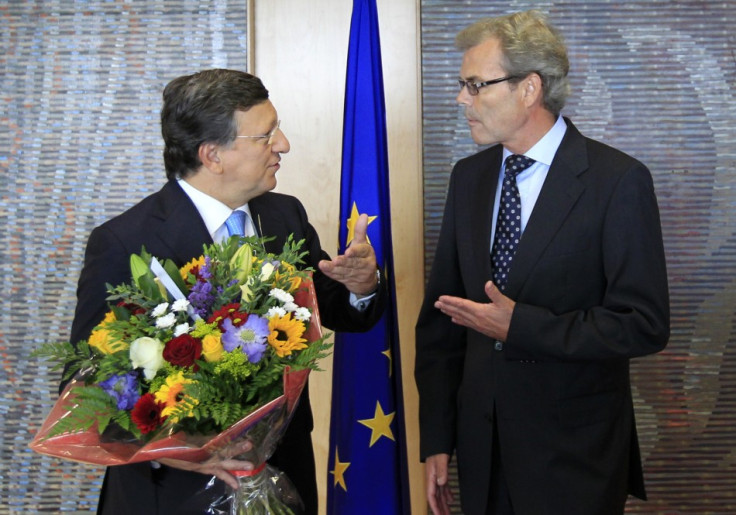Comment: The EU's Nobel Peace Prize Is a Warning, Not an Award

It's widely accepted that Barak Obama's Nobel Peace Prize was awarded - with submissions having been made just weeks after his inauguration - for the assumption of what the newly elected President was going to do.
Friday's award of the iconic Prize for Peace to the European Union - the first ever to an institution - seems more a command as to what the EU had better do.
The Nobel Committee, in effect, reminded Europe's leaders of the consequences of their continued ineptitude - not that we haven't seen that evidence ourselves: a small, manageable and entirely predictable budget hole discovered in Greece three years ago has evolved into a sovereign debt crisis that threatens to swallow the entire 50-year project.
It's already toppled governments - three this year alone - and awoken long-dormant far-right political movements up and down the Continent.
It's reignited an independent and ethnic nationalism drive in Spain that threatens the country's very existence and brought a centuries-old economy in Greece to the brink of total collapse.
It's led to violent protests in Athens, Lisbon, Madrid and Rome and the increasing isolation and vilification of Germany - one of the central architects of the European project.
And along every step along the way of this slow burning fire, Europe's leaders lectured us for being distracted by the smoke and assured us they had stamped out the flames.
Well, they haven't.
And if they can't - or won't - it's not hard to see how quickly that fire could rage out of control.
History's echoes are bouncing off the walls all over Europe and the sounds should make very uncomfortable listening for the technocratic elite as they bicker over the mechanics of its central bank and debate the finer points of budget deficits.
Germany was brought to its knees by the Treaty of Versailles and the humiliating economic conditions foisted upon it by retribution-seeking neighbours sowed the seeds for the fascist harvest that followed.
The neo-Nazi Golden Dawn party in Greece is demanding the personal details of foreign children in Greek nursery schools. Catalans have vowed to vote for independence despite the explicit legal warnings of the Spanish parliament.
Hungary's second-largest party in opposition, the openly anti-Semitic and homophobic Jobbik, has openly called for the expulsion of the Roma.
France's far-right National Front scored its highest-ever total in last spring's presidential elections with 18 percent of the vote.
Against this dangerous backdrop is the seething anger and frustration of Europeans suffering from record-high unemployment, crippling austerity, shrinking economies, disappearing pensions and little hope in sight.
Yes, the European Union has had success in directing the energies of the past, too often used to fuel nationalist tensions, into the construction of the world's second-largest economic bloc.
It's kept a lid on violence and ethnic strife (with notable exceptions in the Balkans, Basque Spain and Northern Ireland) and created landmark institutions of law, culture, politics and sport.
But the time to recognise this was five years ago, when the EU was celebrating the 50<sup>th anniversary of the Treaty of Rome (ironically about four months before the first flame was lit under the bonfire of the credit crisis).
Some have asked who should collect the Prize on behalf of the European Union.
My answer is no one - at least not yet.
Put the prize in a glass case.
Recognise its symbolism.
But keep it there until Europe's leaders can honestly say they've crafted a solution to the economic crisis that clearly addresses more than the bond market.
Then break the EU can break the glass - but only if there isn't an emergency.
© Copyright IBTimes 2025. All rights reserved.





















